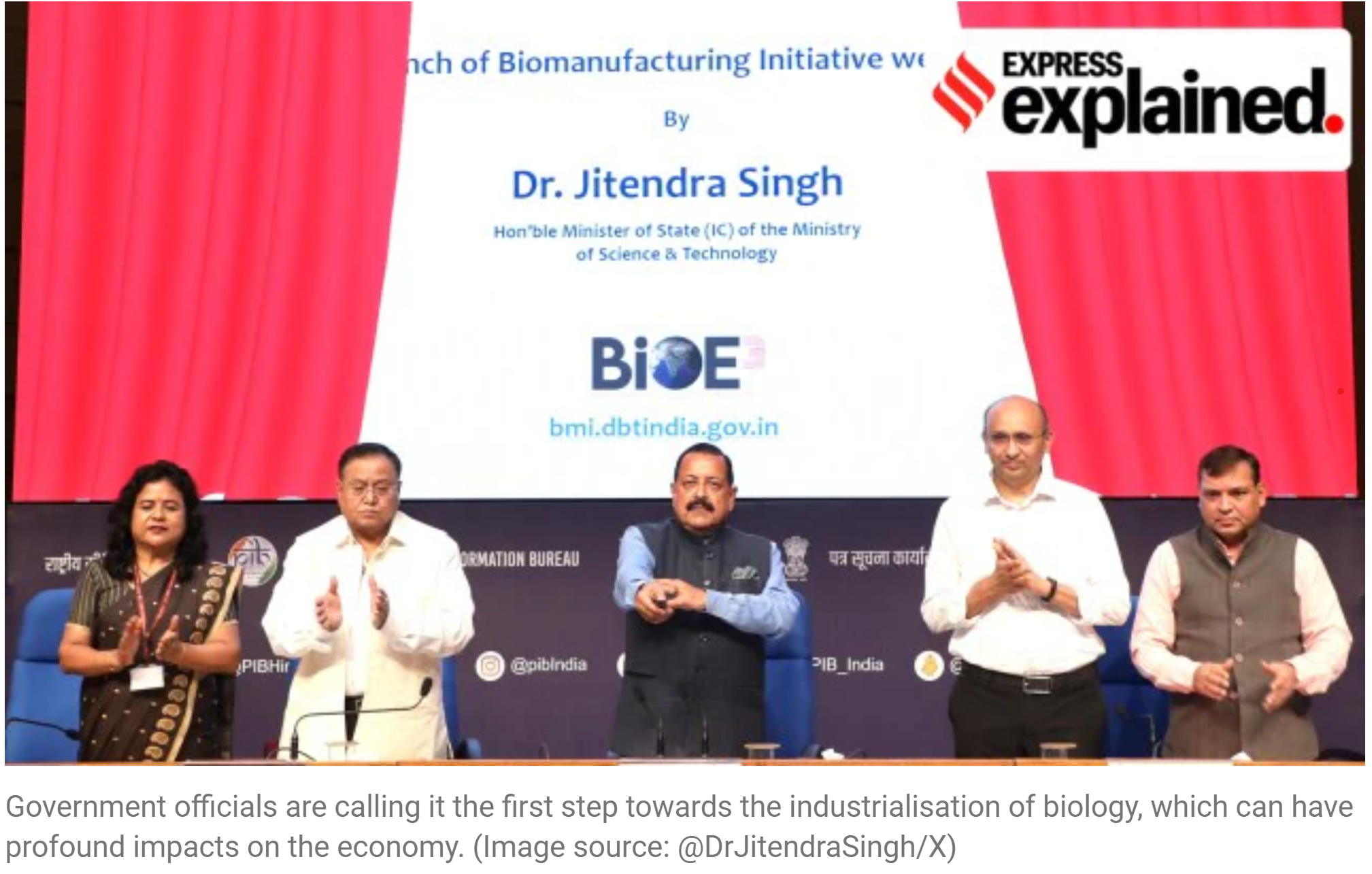How can biotechnology be harnessed for economic development?

- 04 Sep 2024
The Centre unveiled its BioE3 (Biotechnology for Economy, Environment and Employment) policy last week.
On the face of it, the policy appears to be a routine attempt to create incentives and opportunities to energise growth in the biotech sector. But it is, in fact, about transforming existing industrial and manufacturing processes across various sectors to make them more sustainable and environment-friendly, and less wasteful.
The policy seeks to achieve this by harnessing the power of biotechnology, and developing new manufacturing methods that replicate, or mimic, processes found in natural biological systems.
Potential Benefits of Biotechnology:
- Medical Science:
- Cures for genetic disorders.
- Development of targeted therapies and treatments.
- Agriculture:
- Creation of new plant varieties with desirable traits.
- Increased crop yields and resistance to pests and diseases.
- Environmental Sustainability:
- Bioplastics: Eco-friendly alternatives to traditional plastics (e.g., polylactic acid from corn starch).
- Carbon Capture: Micro-organisms capture and convert CO2 into biofuels, reducing the need for CO2 storage.
- Synthetic Biology:
- Design of novel organisms for specific functions.
- Laboratory-grown organs for transplantation, reducing reliance on organ donors.
- Industrial Processes:
- Replacement of chemical processes with biological ones, reducing pollution.
- Production of sustainable materials and fuels.
BioE3 Policy Benefits for India:
- Economic Impact:
- Expected $2-4 trillion from biomanufacturing over the next decade.
- Prepares India for future economic opportunities in biotechnology.
- Research and Development:
- Promotes competencies, research, and talent development.
- Supports technology development and maturation.
- Biomanufacturing Hubs:
- Establishes facilities for producing bio-products: chemicals, enzymes, functional foods, and more.
- Focus areas: bio-based chemicals, smart proteins, precision therapeutics, climate-resilient agriculture, carbon capture, and marine/space research.
- Future Technologies:
- Supports development of life support systems for space and innovative marine-based products.
- Encourages collaboration among multiple government departments for effective implementation.
